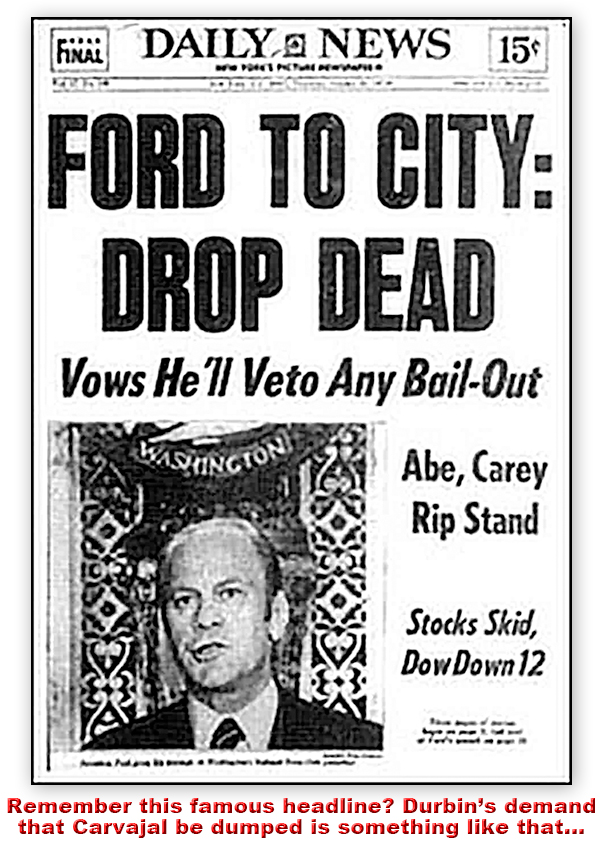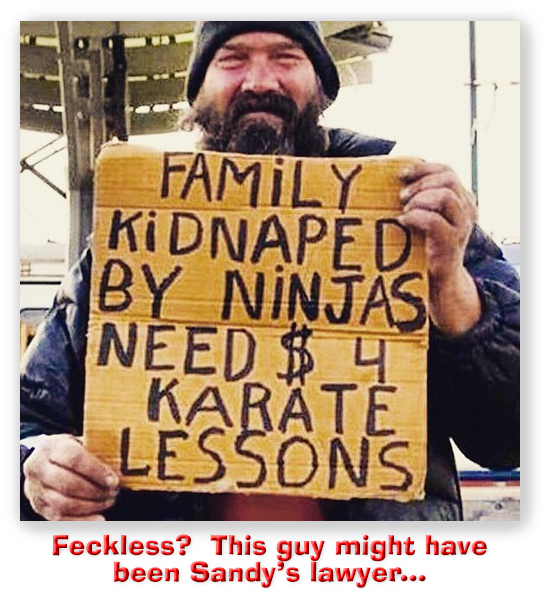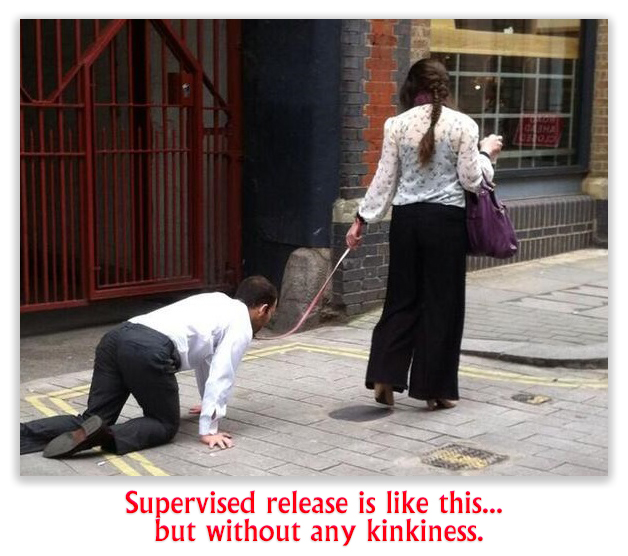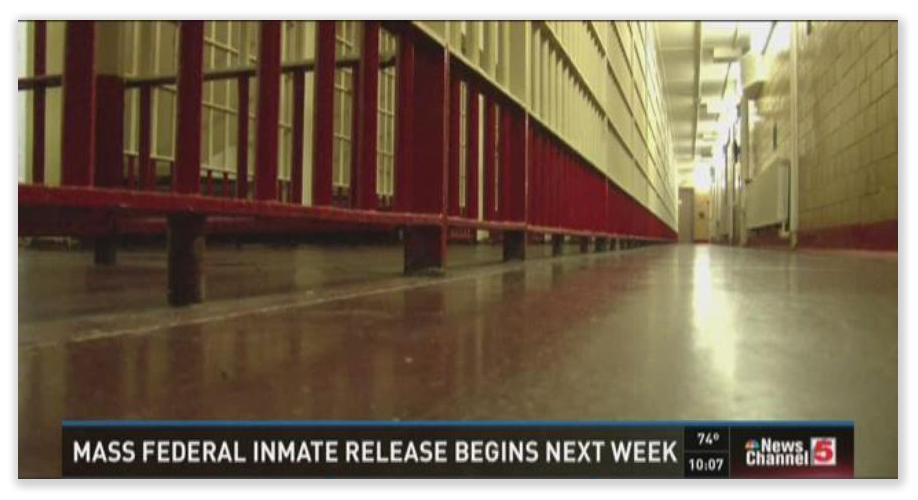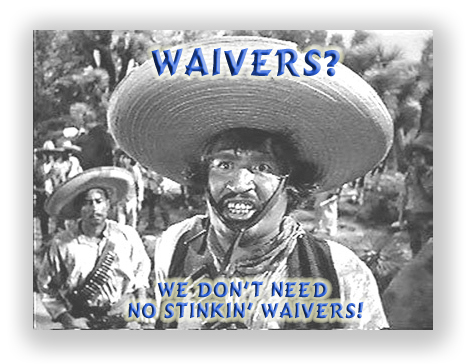We post news and comment on federal criminal justice issues, focused primarily on trial and post-conviction matters, legislative initiatives, and sentencing issues.

BIDEN ISSUES FIRST PARDONS… NO HUMANS MAKE THE LIST
 There was no shortage of complaints from criminal justice reform advocates last Friday as President Biden “pardoned” two turkeys with the rather vegan names of “Peanut Butter” and “Jelly” in a White House ceremony.
There was no shortage of complaints from criminal justice reform advocates last Friday as President Biden “pardoned” two turkeys with the rather vegan names of “Peanut Butter” and “Jelly” in a White House ceremony.
“Peanut Butter and Jelly were selected based on their temperament, appearance, and, I suspect, vaccination status,” Biden said. “Yes, instead of getting basted, these two turkeys are getting boosted.”
But when a reporter asked whether he would be pardoning “any people in addition to turkeys,” Biden treated the question as a joke. “You need a pardon?” the president quipped. He didn’t reply to a follow-up question about marijuana prisoners as he walked away from assembled journalists.
 The turkeys may not get roasted, but the President isn’t so lucky. Law professor and clemency expert Mark Osler wrote in the Minneapolis Star-Tribune that “those of us who work in the field of clemency are left with a bitter taste in our mouths. Biden’s pardon of those turkeys represents the first time he has shown any interest at all in clemency. The problem isn’t just that Biden isn’t granting any clemency, it’s that he isn’t denying any, either. Following the lead of his predecessor, former President Donald Trump, Biden is just letting requests sit.”
The turkeys may not get roasted, but the President isn’t so lucky. Law professor and clemency expert Mark Osler wrote in the Minneapolis Star-Tribune that “those of us who work in the field of clemency are left with a bitter taste in our mouths. Biden’s pardon of those turkeys represents the first time he has shown any interest at all in clemency. The problem isn’t just that Biden isn’t granting any clemency, it’s that he isn’t denying any, either. Following the lead of his predecessor, former President Donald Trump, Biden is just letting requests sit.”
Osler cited the 18,000 pending clemency petitions – 16,000 more than when Obama took office – and the danger CARES Act people may be sent back to prison when the pandemic ends, as “two genuine crises unfolding in federal clemency.”
A few days earlier, Interrogating Justice complained that
President Joe Biden campaigned heavily on justice reform, including with the federal Bureau of Prisons. He acted swiftly after his inauguration by terminating private prisons that housed federal inmates. However, since then, there has been virtually nothing. Various justice-reform groups have called out the president for his apparent lack of action. Points of frustration start with the increased population of federal prisons, the BOP’s inept handling of the pandemic, the failure to apply First Step Act time credits and most recently the question of granting clemency to all prisoners who are at home confinement under the CARES Act. And these are just a few of the many issues that plague the BOP.
 The Minneapolis Post argued that “
The Minneapolis Post argued that “
While campaigning for president last year, however, Biden promised sweeping changes to the criminal justice system. And Biden could not have been more clear that he was committed to reform — promising, “as president” to “strengthen America’s commitment to justice and reform our criminal justice system. Then Biden got elected. And he’s been busy with other things…”
The Hill called it Biden’s “do-nothing” approach to clemency, which
he seems to have delegated entirely to the DOJ… Most of the Democratic candidates for president endorsed this change because the DOJ had proven itself incapable of handling clemency impartially and efficiently for decades… So why doesn’t Biden take clemency away from DOJ and create the kind of advisory commission that President Ford used to aid him in processing a similar backlog of petitions from people with convictions for draft evasion during the Vietnam War? The only apparent answer is that Biden does not want to look like he is interfering with DOJ. But clemency should never have been in DOJ in the first place. It is there by historical accident — no state gives clemency decision-making power to the same prosecutors who bring cases in the first place because of the obvious conflict of interest problem it poses.
New York Times, Boosted, Not Basted: Biden Pardons 2 Turkeys in Thanksgiving Tradition (November 19, 2021)
New York Post, Biden laughs off question about clemency for humans before pardoning turkeys (November 19, 2021)
Minneapolis Star-Tribune, When it Comes to Human Pardons, Thanks for Nothing (November 19, 2021)
Interrogating Justice, The Biden Administration Has Gone Quiet on Justice Reform at the BOP (November 15, 2021)
Minneapolis Post, When will Biden make good on his promise to reform criminal justice? (November 15, 2021)
The Hill, Biden can’t let Trump’s DOJ legacy stifle reform (November 17, 2021)
Thomas L. Root


